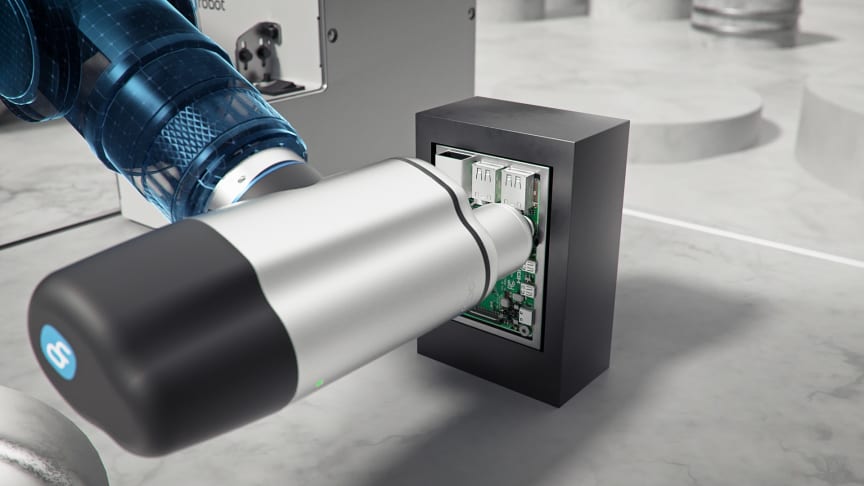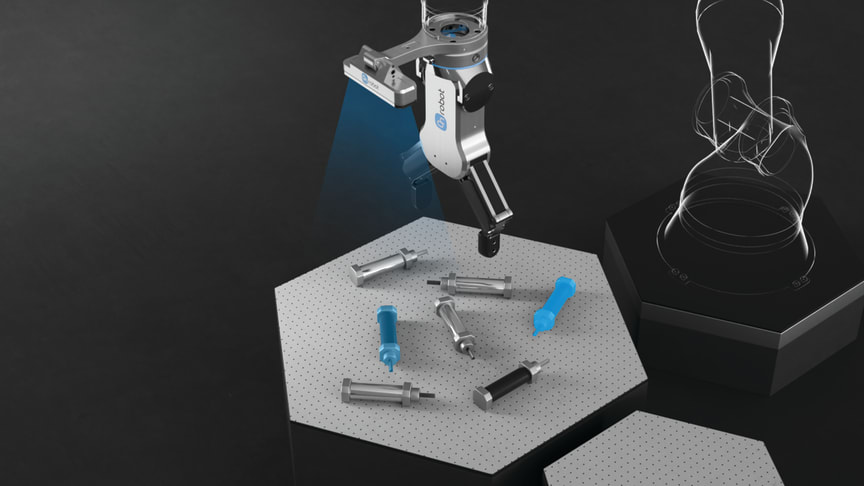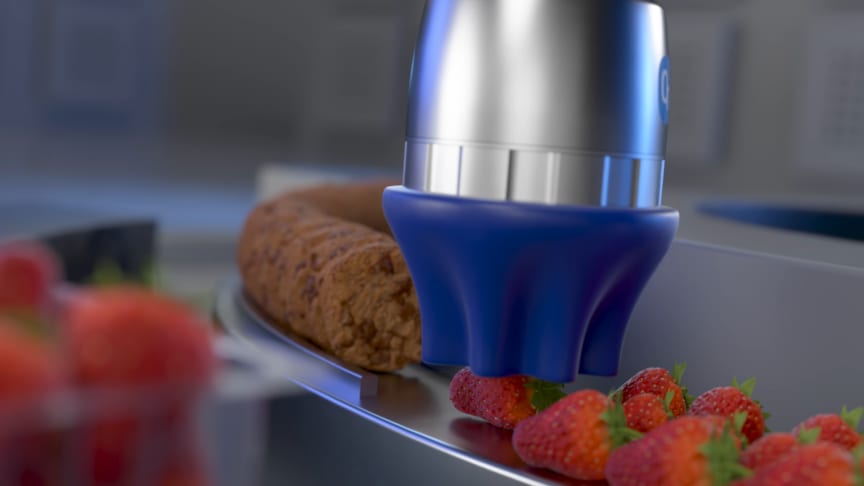Robotic tools make 3D manufacturing process safer
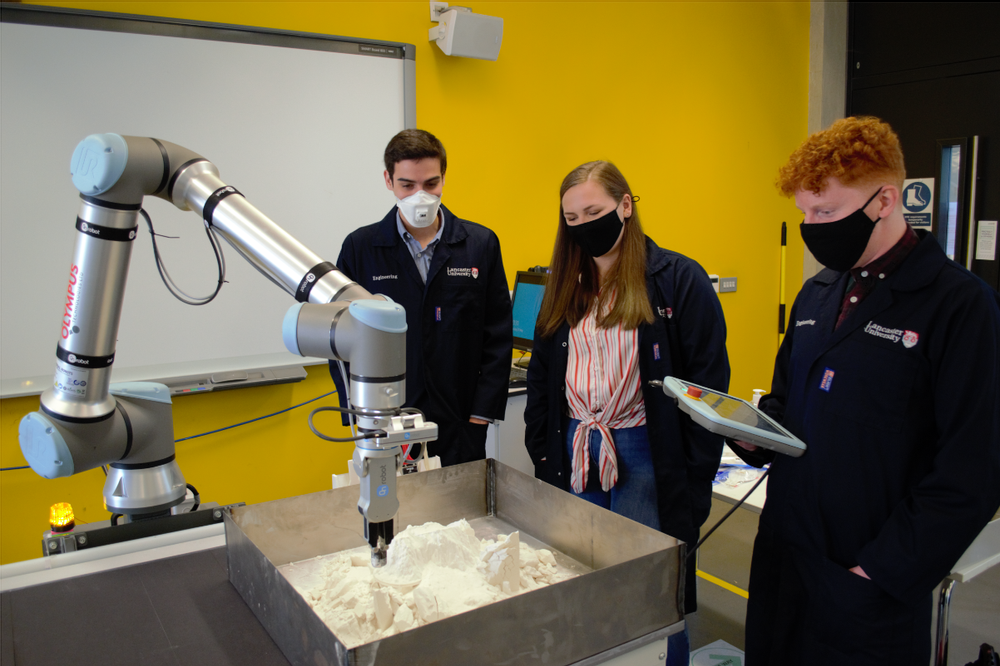 Students from Lancaster University: Left: Vasco Vieira - Middle: Jenny Wilson - Right: James McEwan
Students from Lancaster University: Left: Vasco Vieira - Middle: Jenny Wilson - Right: James McEwan
Using robot technology from OnRobot, the students built an automation solution that eliminates worker exposure to the nylon powder used for 3D printing and additive manufacturing. Exposure to the nylon powder is harmful as workers may inhale, ingest or accidentally rub it into their eyes while working. The Lancaster students’ solution reduces worker exposure and eliminates associated health risks.
Additive Manufacturing and industrial 3D printing processes are booming, changing the way manufacturers work and invent. Rapid changes on the manufacturing side, means rapid changes in the work environment, and businesses must work to keep up and ensure the work environment related to new technologies like Selective Laser Sintering is safe.
The nylon powder used and left behind when an employee extracts a 3D printed part can be harmful to the person doing the job, so having an intelligent system - a robot - do this job will result in a healthier, safer and cleaner workplace.
A team of five engineering students at Lancaster University took on the challenge to create an intelligent system that can extract the additive manufactured parts from the cake of nylon powder, which is left after selective laser sintering, eliminating human interaction with the fine nylon powder.
The student Team Leader, James McEwan, said:
The resulting system has proven to be a robust system being able to accommodate different sized cakes and a large variety of parts of differing shapes and sizes. As for the effect this system can have, it means that workplaces will be safer as workers will no longer be at risk of ingesting the powder or getting it in the eyes which can be harmful.
The Lancaster students have achieved a very solid base for further work around automated post processing of additive manufactured parts. The team at Lancaster expect this to be the first of many successful projects using cobots to improve the efficiency, reproducibility and safety of manufacturing processes and they would like to acknowledge funding from the Lancashire Enterprise Partnership which helped support this research area.
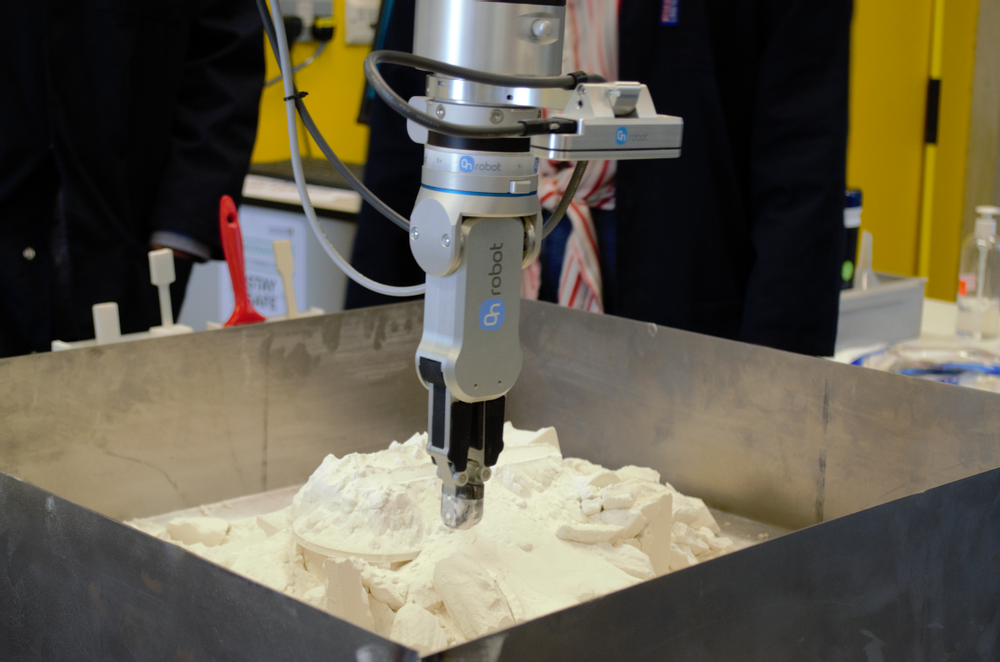
Professor Andrew Kennedy, Chair of Advanced Manufacturing at Lancaster University, is impressed with the product range and quality in addition to the service and advice provided by OnRobot’s local partner Olympus Technologies:
We approached Olympus Technologies to help us select robots, end-effectors, and vision products for our Engineering Labs. We had an initial project in mind, but we wanted the range of products to offer the widest potential range of future uses. Despite the pandemic preventing them from visiting the site, Olympus has continued to support us remotely. Most of the equipment was very straightforward to install and get into use, and Olympus have been quick to provide support when we did have any questions.
Adam Swallow, Director, Olympus Technologies Ltd:
As an employer of engineering graduates, Olympus Technologies is delighted to see robotics being incorporated into mechatronic and mechanical engineering degree courses, and students being challenged to solve real world problems with innovative robotic equipment. Lancaster University’s decision to purchase Universal Robots together with a wide range of OnRobot equipment sets them up perfectly for many more groups of students and researchers to tackle a wide range of automation challenges. It has been a delight to support this first team of students, who have delivered a fantastic project despite the challenges of the times we live in. We look forward to continuing to support the University.
In Denmark at OnRobot’s Headquarters, General Manager Vikram Kumar is impressed by the students’ results.
The project at Lancaster University is a great example of what you can achieve by combining human creativity with the flexibility and user-friendliness of our technologies. Kudos to the young innovation heroes! Automation is the way forward for my members, both to ensure a good working environment and strong competitiveness. I find the British project very interesting.
Technology deployed in this project:
OnRobot products: OnRobot RG2 (two fingered gripper), OnRobot Eyes and the HEX Force Torque Sensor and a UR5 cobot from Universal Robots.
The RG2 gripper is used to pick up the parts, and it is also used as a ‘probe’ to sift through the powder because it is IP54 rated, and therefore ‘dust protected.’
The HEX Force Torque Sensor and the HEX UR cap is used to sense the impact of any collisions the probe will experience when it makes contact with parts.
OnRobot Eyes determines the size and free spaces of the part.
About OnRobot
OnRobot delivers a full line of innovative plug-and-produce solutions for collaborative applications. Our electric grippers, force/torque sensors, vacuum grippers, award-winning Gecko technology and tool changers help manufacturers gain the full advantages of automation, including ease of use, cost-effectiveness, and safety alongside human workers. The combination of offerings makes it quicker and simpler to automate tasks such as packaging, quality control, material handling, machine tending, palletizing, assembly and surface finishing.
